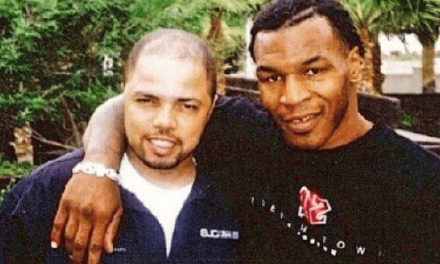The Feinman family faced arrest for asserting their constitutional right to be secure in their person, papers, and effects while traveling across the hypothetical border separating California and Nevada. The incident, which took place in August 2015, ignited a debate surrounding the legality and ethics of agricultural inspection stations operating in the area. This article aims to outline the events that transpired, explore the underlying reasons, and examine the potential implications of this case on the civil liberties and freedoms of individuals.
What Happened to the Feinman Family?
While traveling from Nevada to California, the Feinman family encountered a checkpoint at the Truckee agricultural station. Officials requested they open their trunk and disclose the source of their cargo. Brad Feinman, the patriarch, refused, citing his Fourth Amendment rights. He demanded to see a warrant or probable cause for the search and declined to provide his license and registration, asserting he wasn’t engaged in commerce and wasn’t under state jurisdiction.
Officers threatened arrest and forcibly removed Brad from the car after failing to coerce compliance. Catherine, Vincent, and Bradley were also removed and handcuffed. Despite searching the vehicle without consent, authorities found nothing illegal. The family was arrested on charges including resisting arrest, obstructing justice, and child endangerment. Although released on bail later, their car and belongings were impounded.
Why Did the Feinman Family Refuse the Inspection?
The Feinman family’s refusal of the inspection stemmed from their belief that it infringed upon their privacy and property rights, deeming it unlawful and unconstitutional. They contended that agricultural inspection stations lacked legal authorization at both federal and state levels, viewing them as mechanisms for revenue generation and traveler harassment. Additionally, they asserted non-applicability to California Department of Food and Agriculture regulations due to their lack of engagement in commercial activities or transportation of agricultural goods.
As advocates of the Restore Freedom Project, the Feinmans aligned with a movement striving for the reinstatement of constitutional principles and safeguarding natural rights. This movement challenges governmental legitimacy, rejects imposed statutory laws, and empowers citizens to resist government overreach, advocating for sovereignty and freedom restoration.
What Are the Implications of the Feinman Family Case?
The Feinman family case has sparked significant debate regarding the legality and ethicality of agricultural inspection stations, as well as the rights and freedoms of travelers passing through them. The California Department of Food and Agriculture (CDFA) contends that these stations are crucial for preventing the introduction and spread of pests and diseases that pose threats to the state’s agriculture and environment. According to the CDFA, these stations operate under authorization from the California Food and Agricultural Code, and travelers are obligated to comply with inspections or face penalties. Furthermore, the CDFA asserts that these inspections are not searches but rather visual inspections that do not violate the Fourth Amendment.
However, critics argue that these inspections do constitute searches and therefore violate the Fourth Amendment, which safeguards individuals from unreasonable searches and seizures. They argue that these inspections lack warrants or probable cause and are conducted without travelers’ consent or awareness. Moreover, critics contend that inspections extend beyond agricultural products to encompass personal belongings in travelers’ vehicles. They also assert that these inspections are ineffective and unnecessary, representing a misallocation of time and resources that could be better utilized for addressing other public safety concerns.
Additionally, the Feinman family case prompts scrutiny of the validity and relevance of statutory laws and codes enforced by the government. The Feinman family and advocates from the Restore Freedom Project argue that statutory laws and codes are not the ultimate law of the land and are not binding on individuals who have not consented to them. They posit that the original Constitution constitutes the supreme law of the land and that individuals have the right to live in accordance with natural law and common law. They assert that individuals are sovereign, with the government serving as their servant rather than their master.
The Feinman family case represents a contentious and intricate legal battle, highlighting the clash between governmental authority and individual rights. While the case remains pending in the courts with an uncertain outcome, it has spurred widespread attention and discourse, prompting individuals to question and challenge existing norms. Moreover, it underscores the necessity for dialogue and resolution between the government and the populace to ensure the preservation and protection of citizens’ rights and freedoms.


